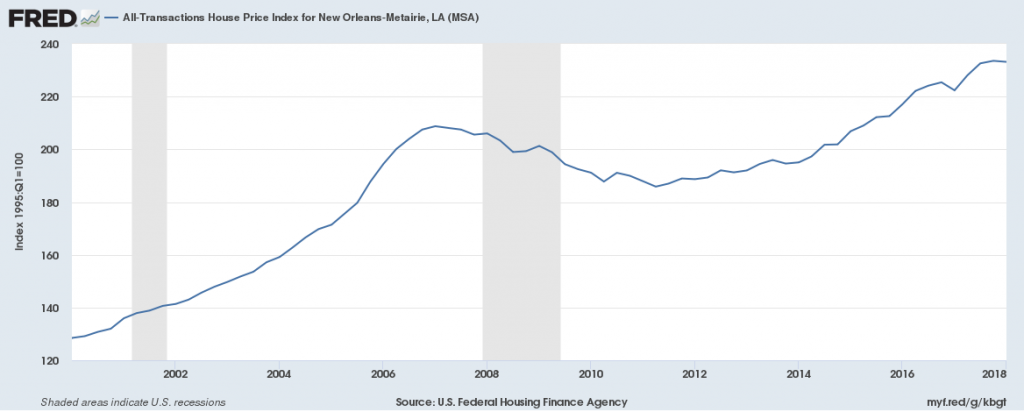Gross Domestic Product
Real GDP (a measure of economic growth) has been increasing since 2013 from the most recent low of $202 billion. It has grown to $207 billion by 2017, lower than the 2010 high of $221 billion.
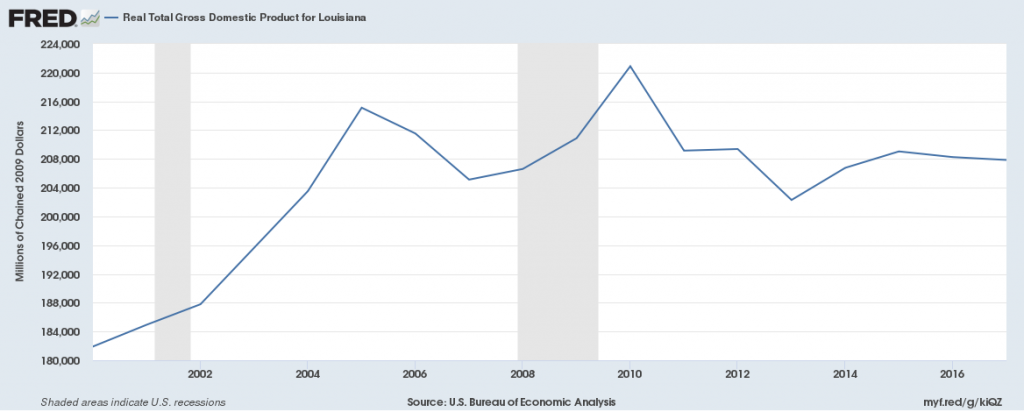
Jobs
Private-sector employers have added 150,000 jobs since 2010, the national low point for private-sector employment. From 2017 to 2018 the private sector has lost approximately 20,000 net new jobs for a total of 1,660,000, putting it below the 2015 high of 1,670,000 total jobs. Average hourly wages in the private sector have grown since 2008, going from $18/hr to $23/hr in 2018.
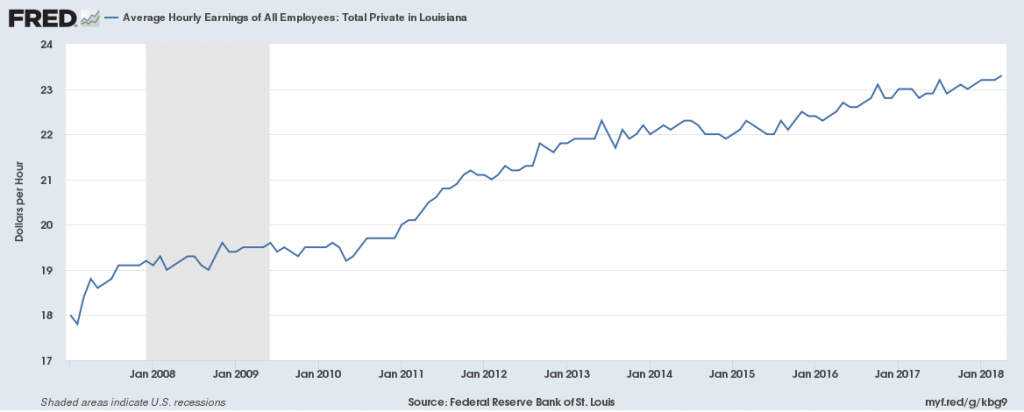
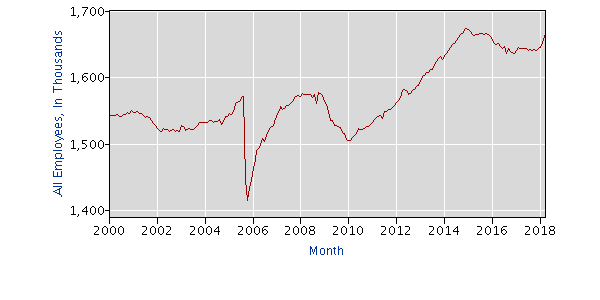
Manufacturing employment has been generally declining since 2000, especially during the 2008 recession, with a recovery from 2010-2014 followed by another decline till 2018. There were 138,000 jobs in this sector in 2018, below pre-recession levels of 158,000. Average hourly wages of production employees have grown since 2005, going from $17/hr to $22/hr in 2018.
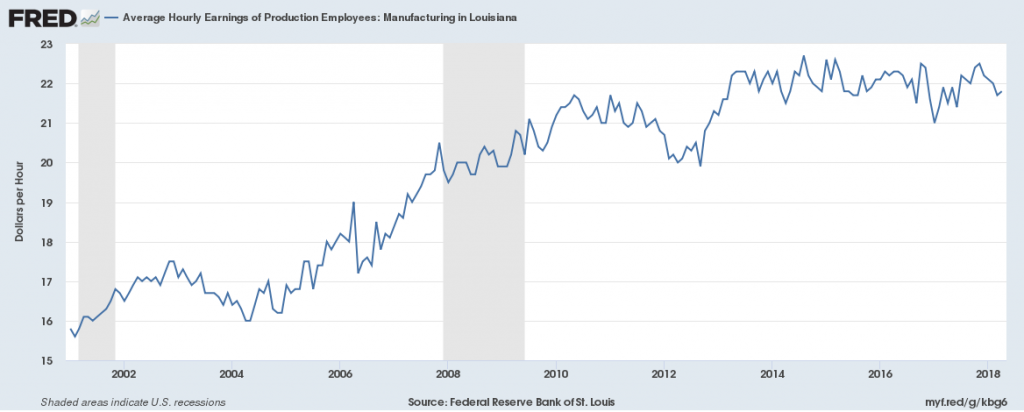
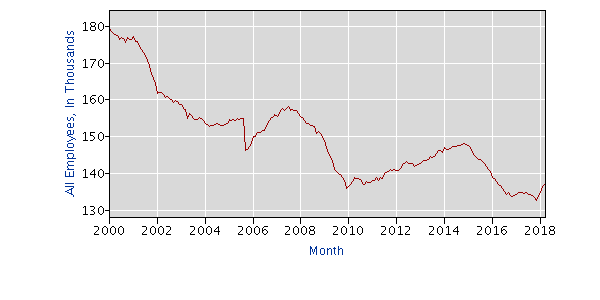
There were 78,000 jobs in the Trade, Transportation and Utilities sector in 2018, 12,000 jobs above its 2015 high, showing growth in this sector. The average wage in this sector has grown from $15/hr in 2008 to $21.25/hr 2018.
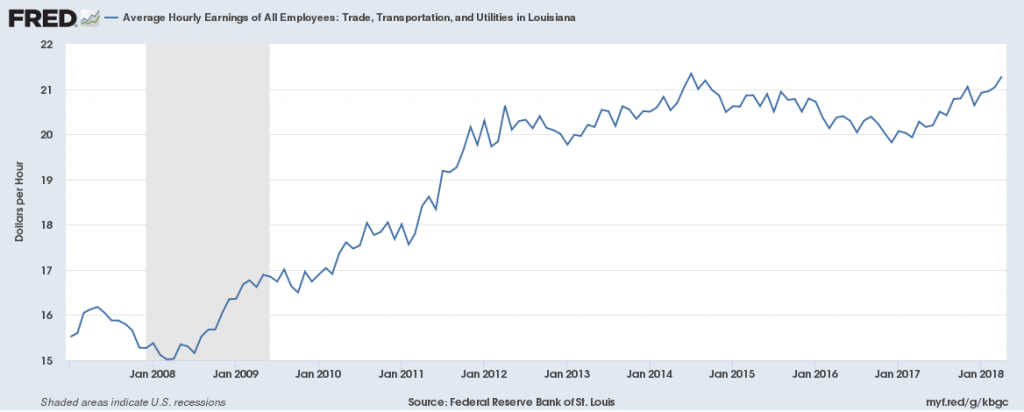
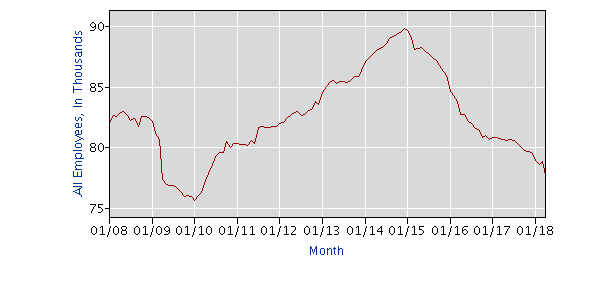
Unemployment
The unemployment rate in 2018 is 4.5%, down from the prior year’s 6% rate. This is above the national average of 3.9% unemployment.
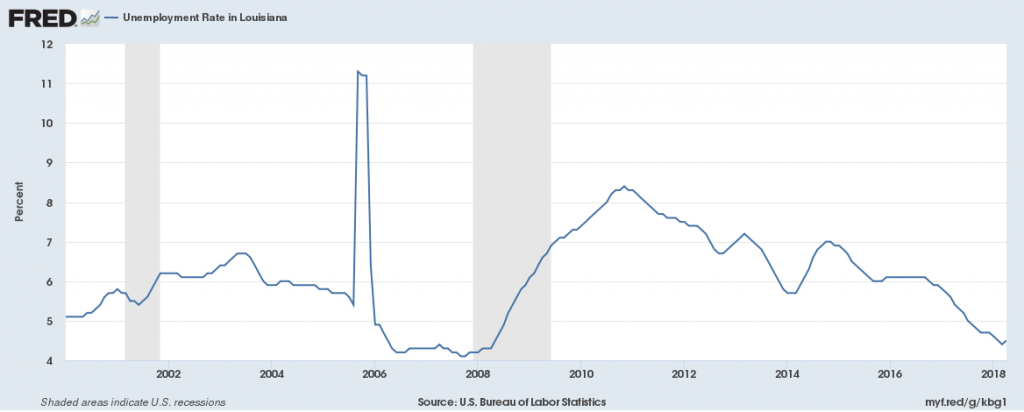
Housing
The House Price Index, a measure of the cost of housing, stagnated after 2008 until 2013 when it grew from 243 in 2013 to 283 in 2018, reflecting growing housing costs above pre-recession levels.
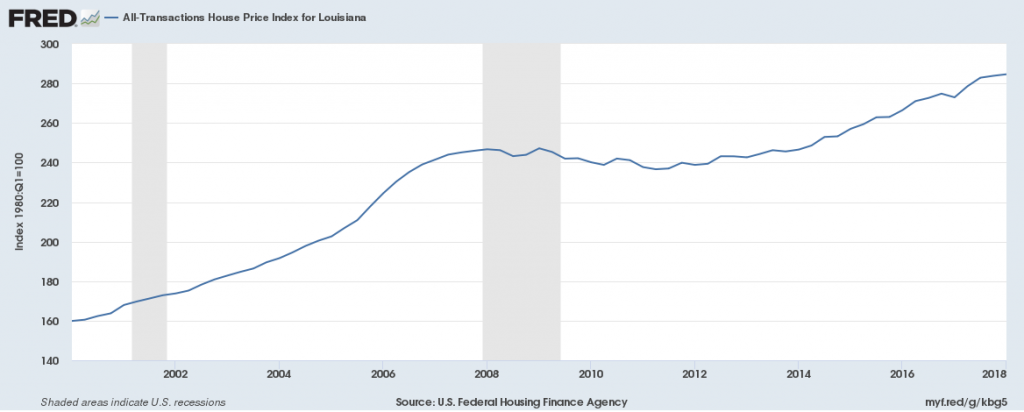
New Orleans
Gross Domestic Product
Real GDP (a measure of economic growth) has been increasing since 2013 from the most recent low of $62 billion. It has grown to $67 billion by 2016, lower than the 2010 high of $71 billion.
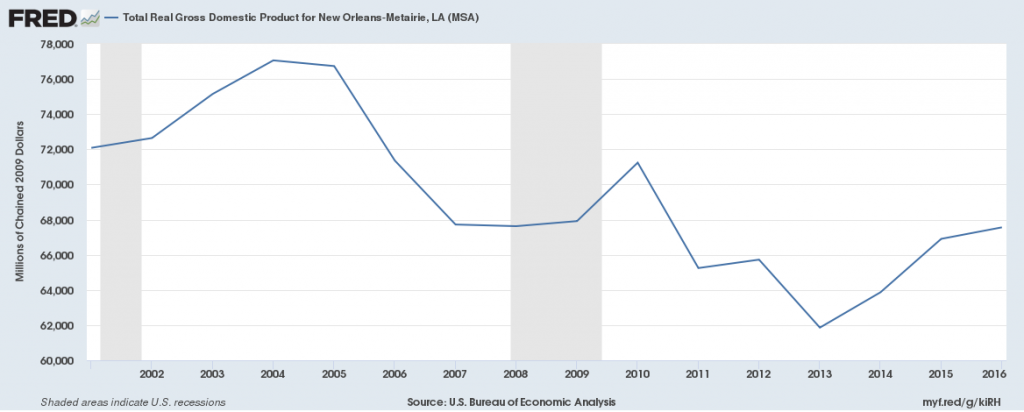
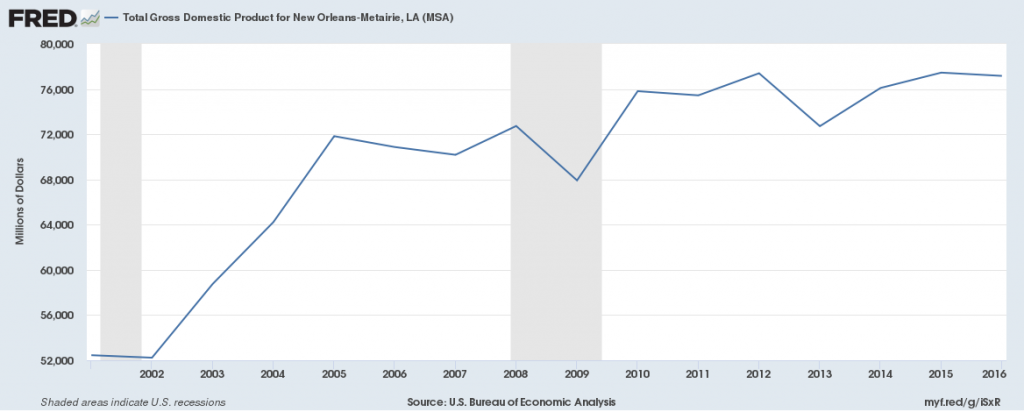
Jobs
Private-sector employers have added 70,000 jobs since 2010, the national low point for private-sector employment. From 2017 to 2018 the private sector has not added any net new jobs. There are 505,000 total jobs in the private sector, above the pre-recession high of 460,000 total jobs but below pre-Hurricane Katrina levels of 520,000. Average hourly wages in the private sector have grown since 2008, going from $22/hr to $25/hr in 2018.
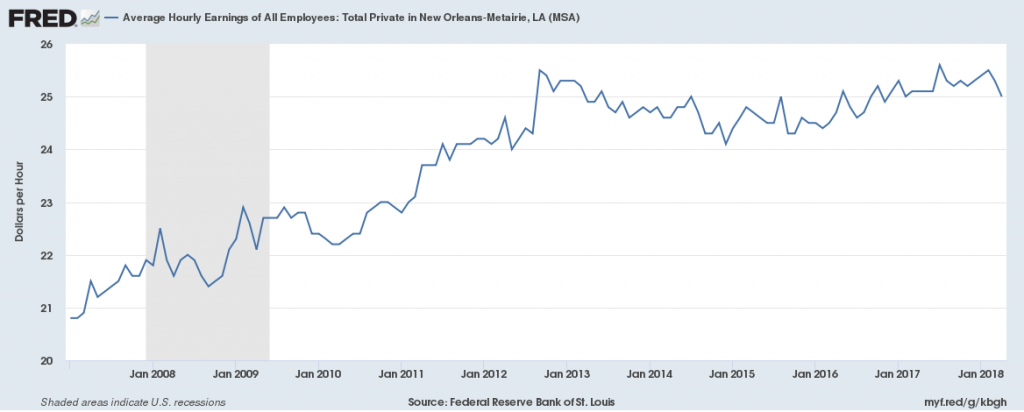
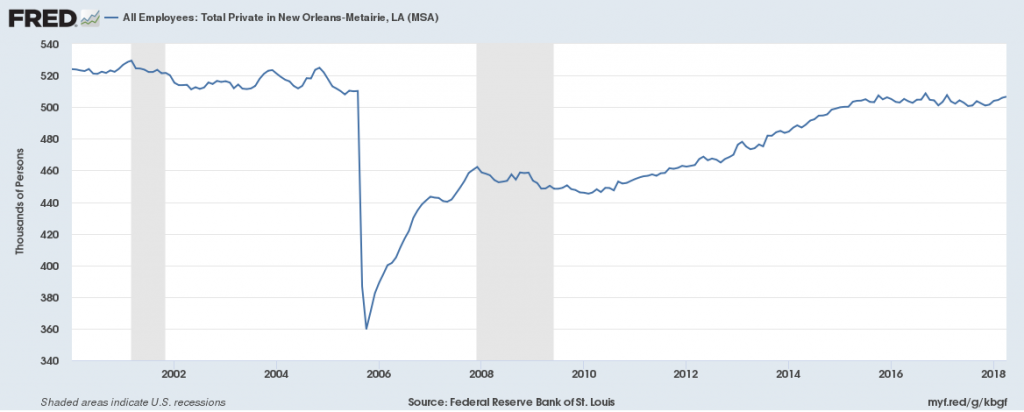
Manufacturing employment has been generally declining since 2000, especially after the 2008 recession. There were 32,000 jobs in this sector in 2018, below pre-recession levels of 39,000. Average hourly wages of production employees were $21.72 in 2018.
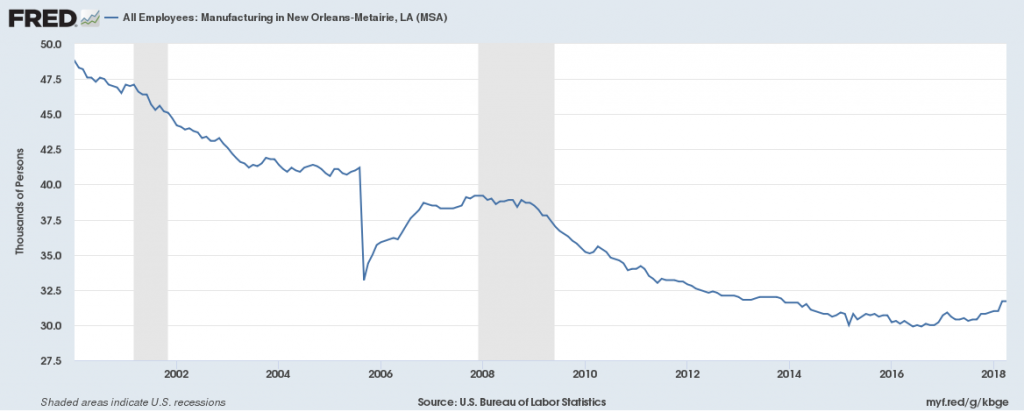
There were 28,500 jobs in the Trade, Transportation and Utilities sector in 2018, 2,500 jobs above its pre-recession high, showing mild growth in this sector. The average wage in this sector was $18.61/hr 2018.
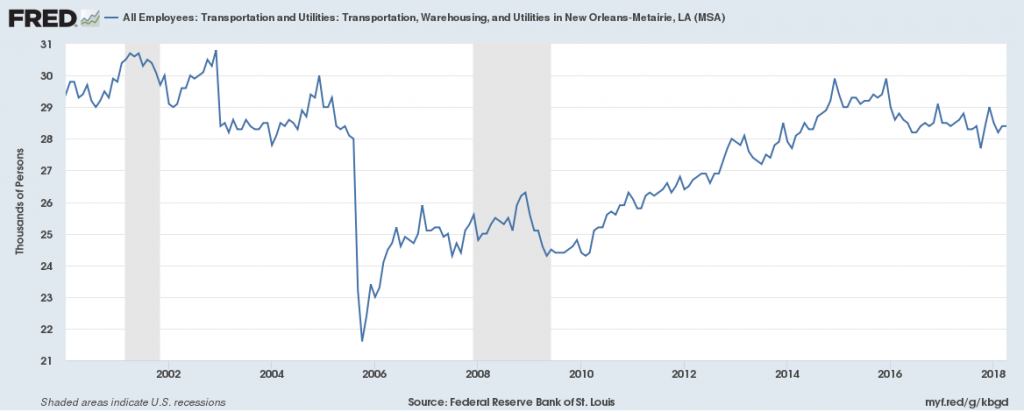
Unemployment
The unemployment rate in 2018 is 4.7%, down from the prior year’s 5.2% rate. This is above the national average of 3.9% unemployment.
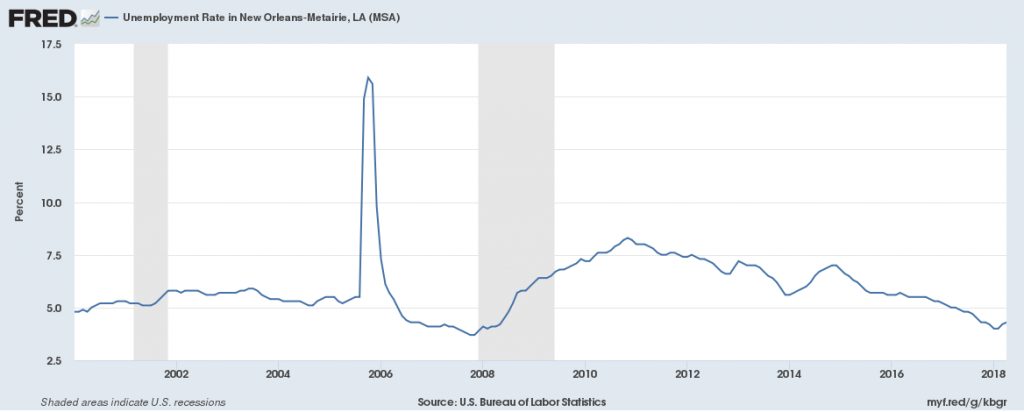
Housing
The House Price Index, a measure of the cost of housing, declined after 2007 until 2011 when it began growing from 187 in 2013 to 235 in 2018, reflecting growing housing costs above pre-recession levels of 2008.
